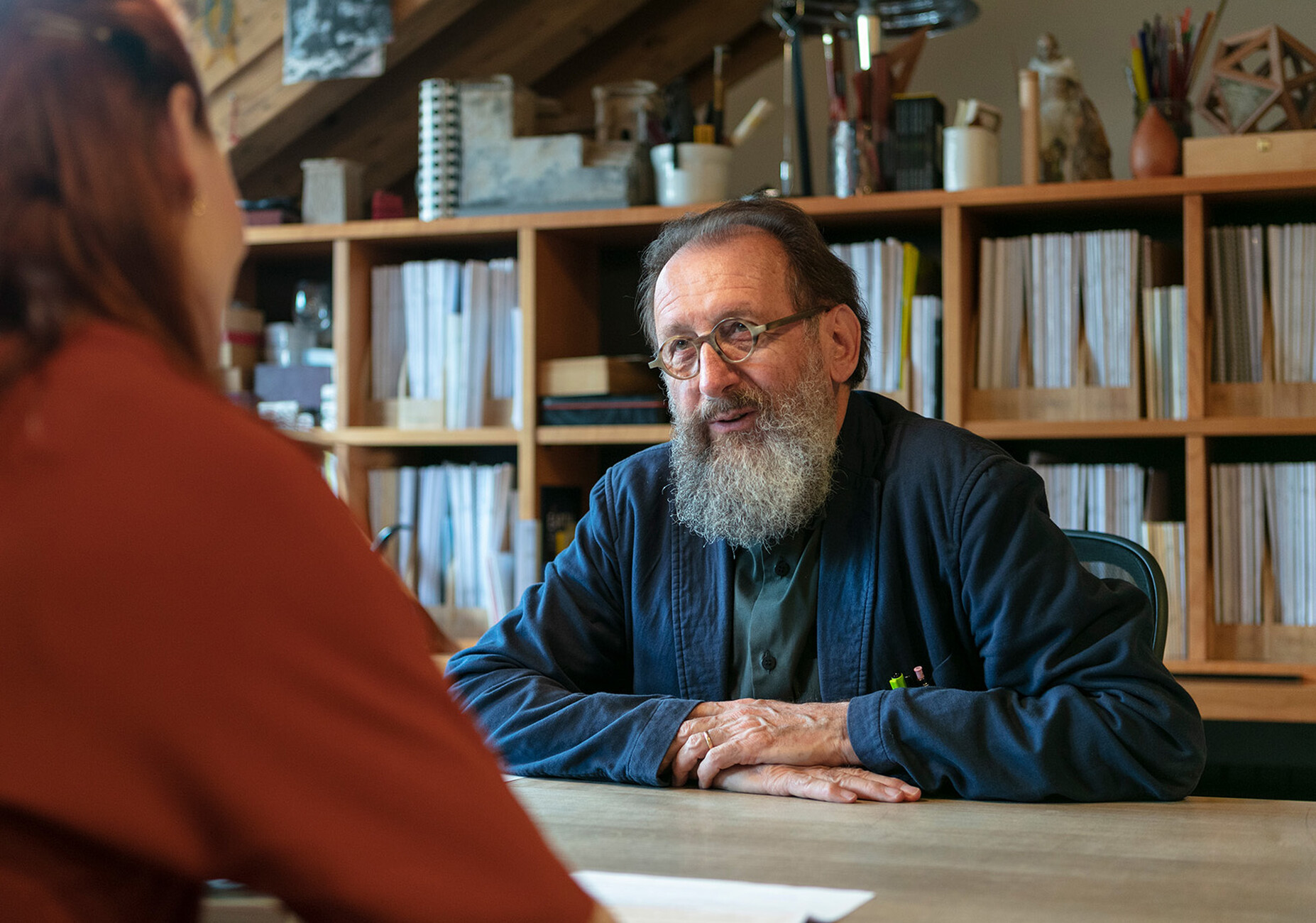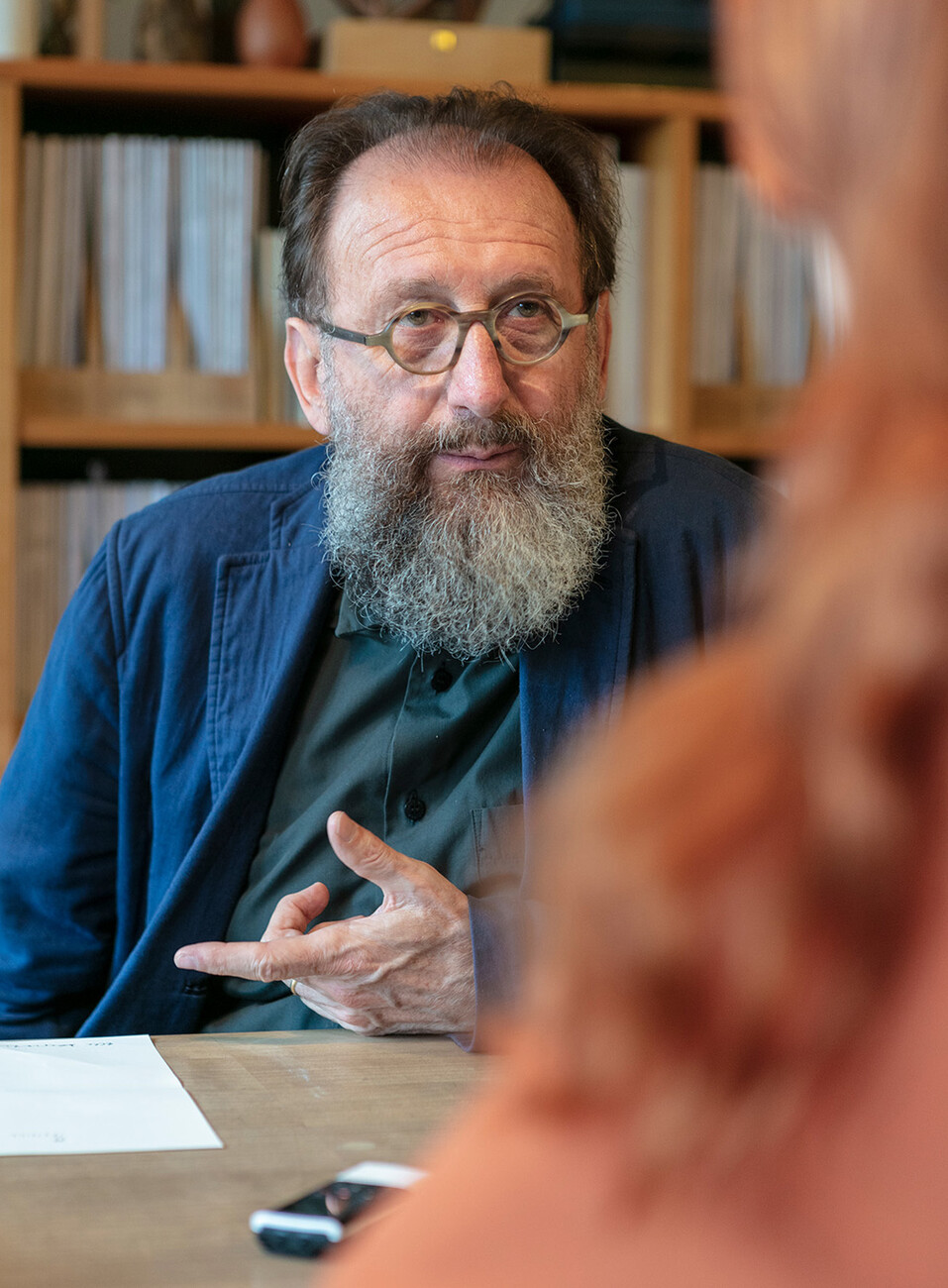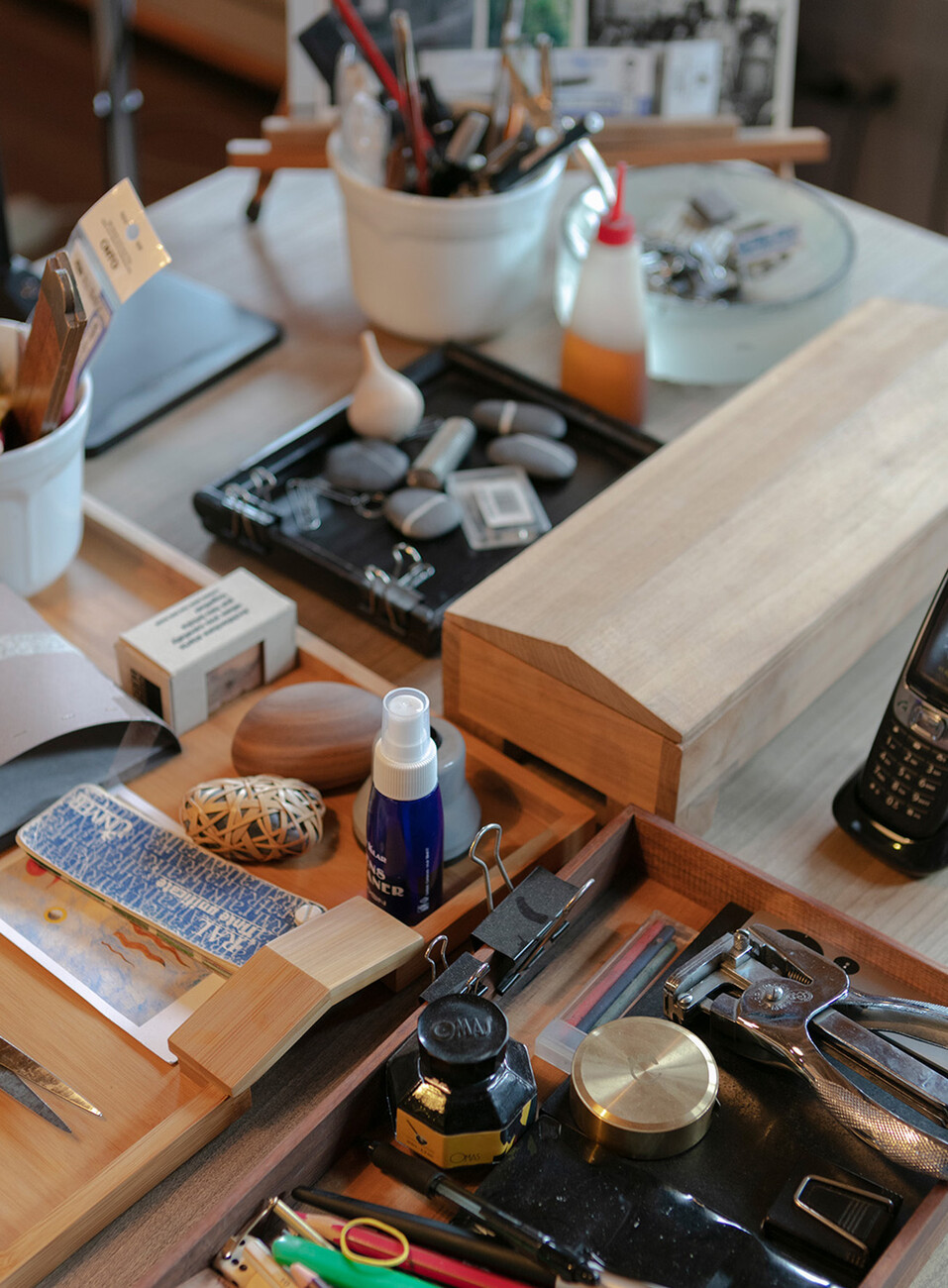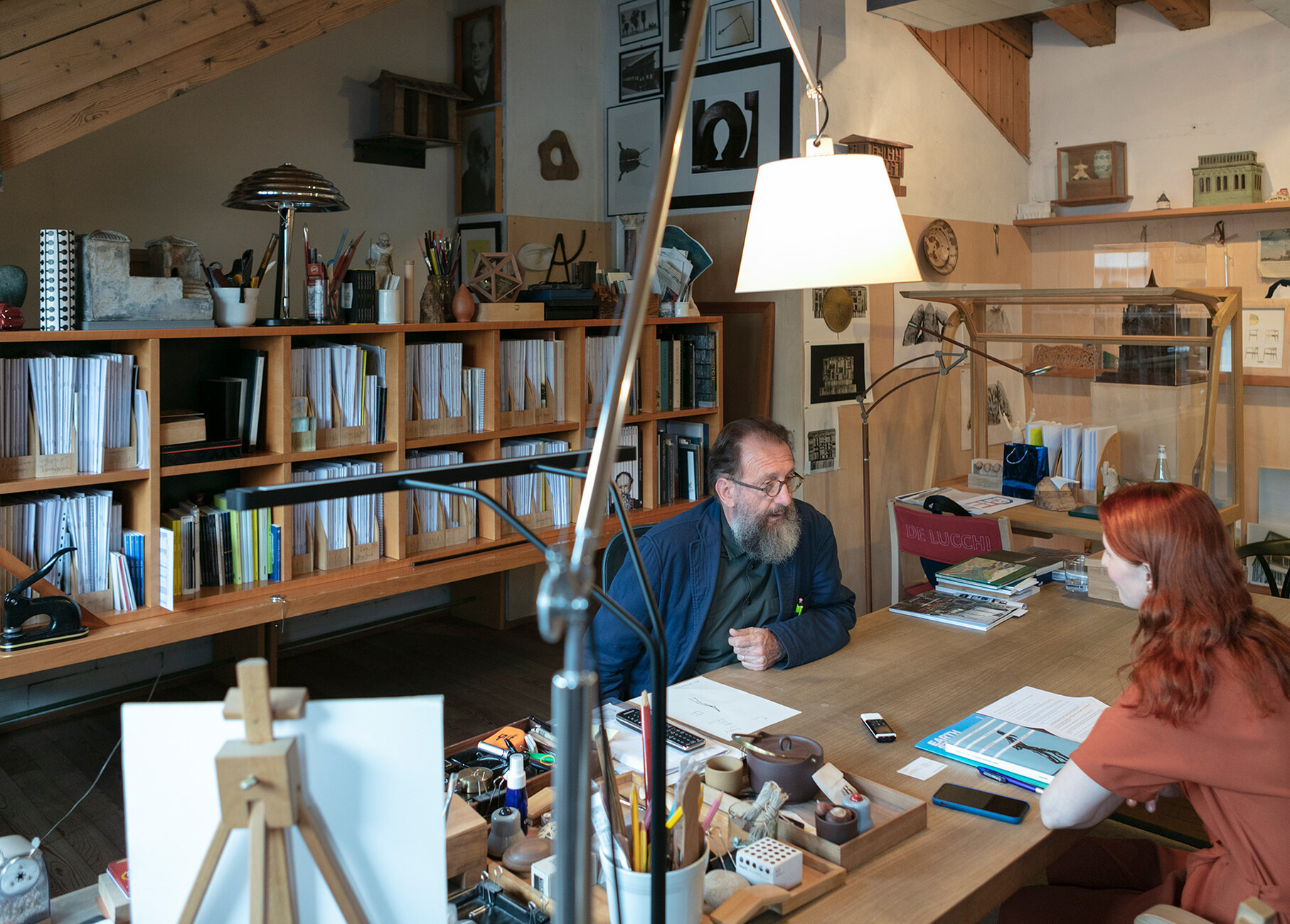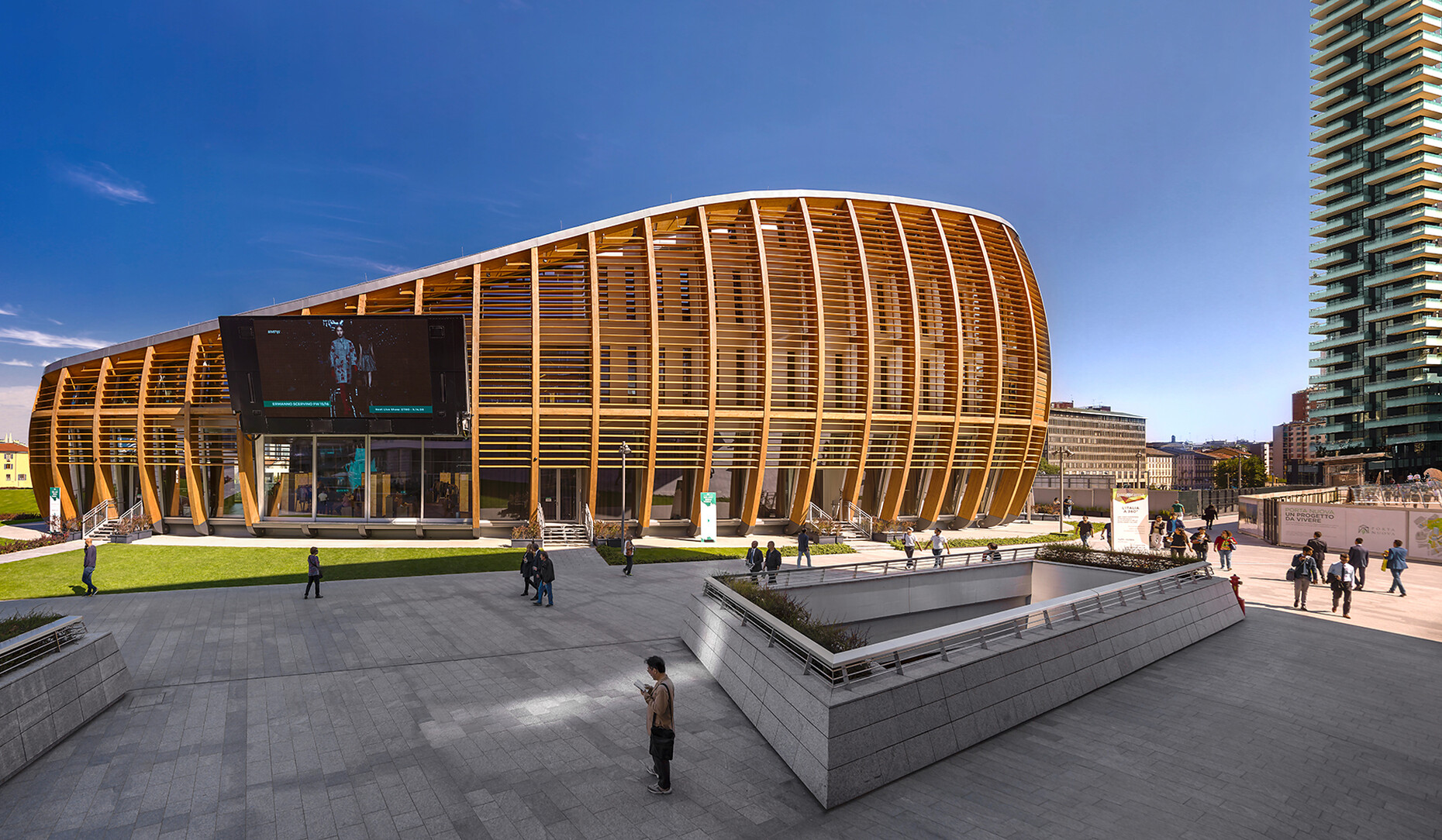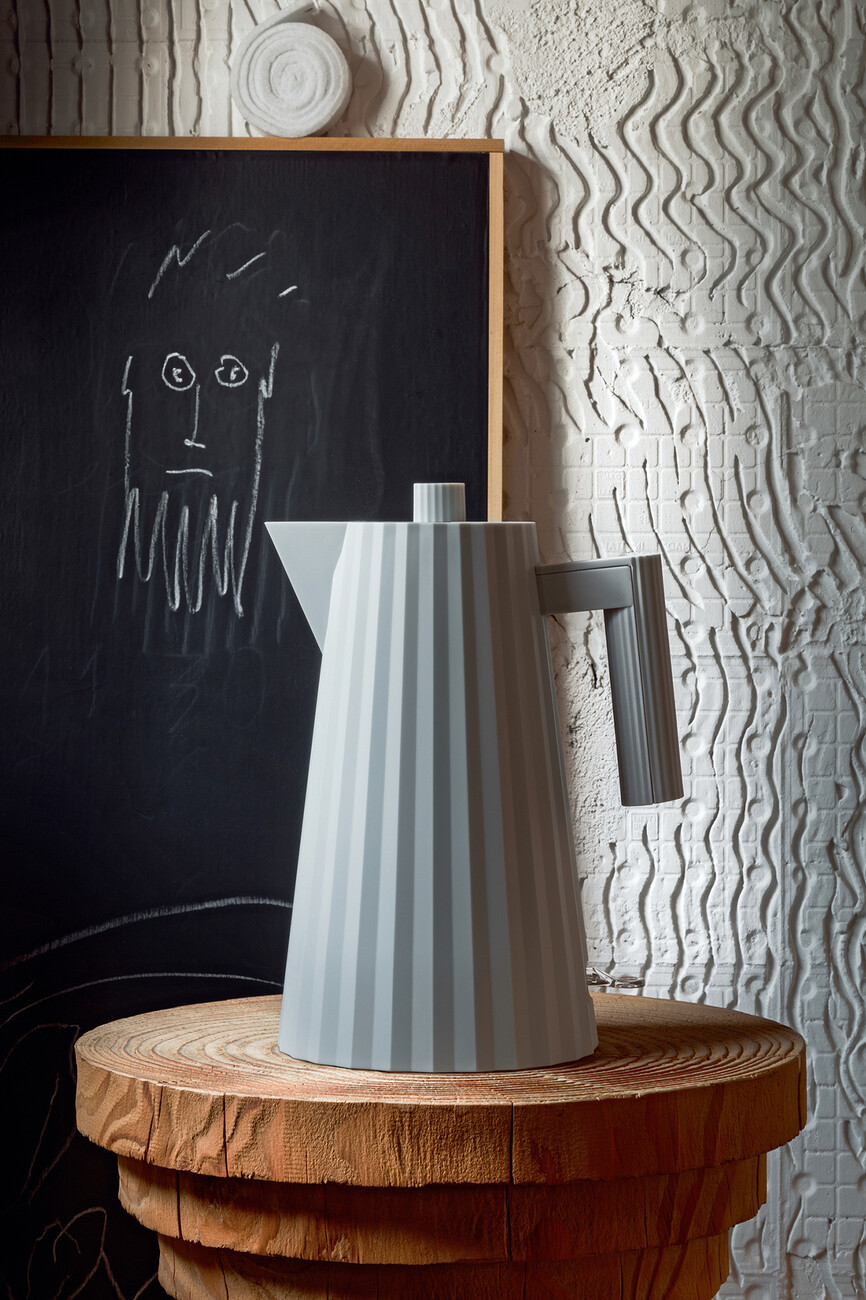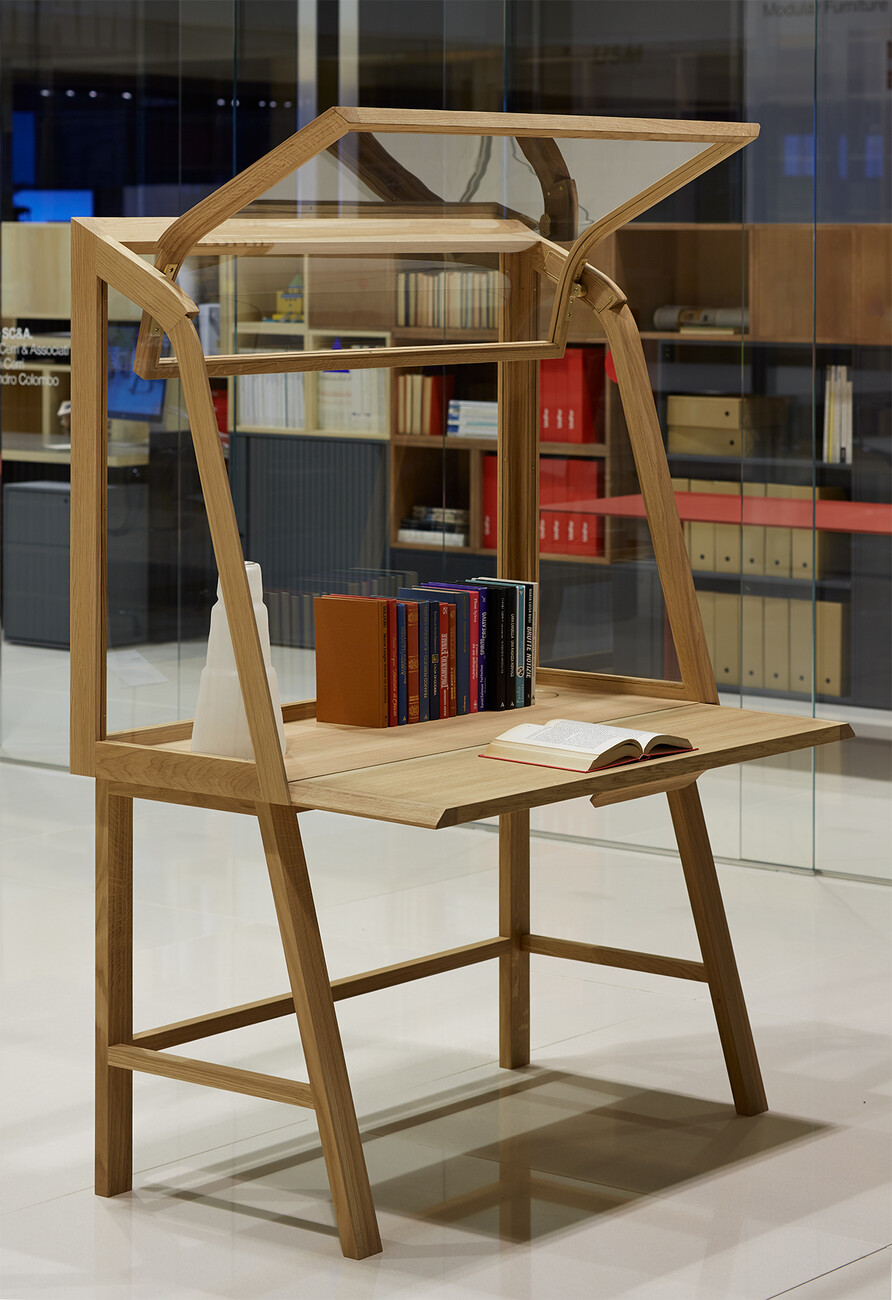Solving conflicts: Michele De Lucchi in interview
Anna Moldenhauer: Maestro De Lucchi, you like to rely on unusual tools for your objects. What did you learn from working with a chainsaw?
Michele De Lucchi: (laughs) The chainsaw is a very simple tool, a fundamental instrument with which you can't do very much in fact. You can cut with it, nothing else. You can't do detailing or curves. To a certain extent it is thus a way to force myself without further ado to get down to the core of the idea. In this case, the complicated path leads to clarity.
And precision counts, too.
Michele De Lucchi: Absolutely. You must be very alert.
I read in your book "My Horrible Wonderful Clients" that you always first record your draft designs on drawing pads. Why is that important to you?
Michele De Lucchi: I love drawing. Drawings are the main reason why I decided to become an architect. The problem is simply that I don't have the time. Which is why I use any possible opportunity when the mind is free, for example on a train or plane, or wherever I am sitting somewhere waiting. I always have my drawing pad in my bag, ready to use that lost time.
Where do you most like to go to give your mind free rein?
Michele De Lucchi: It is really important to have a private space where you can work. I am very lucky in this regard as in my house on Lago Maggiore I can find something approximating nothingness. That way I can completely separate the work I do alone from the work I do with the team in Milan. For an architect it is important to have both positions. The one is to express something yourself, or at least find out what constitutes you as a person. The other is the social aspect of life as an architect. An architect is a kind of artist, but one who also serves himself. To that end he must direct and satisfy all the people who work with him, the community. Like a director. Being an architect, it's a wonderful profession. However, reality must never be ignored. Reality does not have to be part of your work as a pure artist, but for an architect it is really important.
Your work has a lot to do with communication. Only through communication can you create a fitting environment for people. What must a design or an architecture possess in order to communicate with you?
Michele De Lucchi: Communication is very important. And that includes as an intermediary element, as the idea, the imagination. If you read a good book, then images also pop up before your mind’s eye. And then it's up to the imagination, as the latter functions as the link between words and objects.
So what kindles interest is more the presence of many elements, like with a puzzle?
Michele De Lucchi: A puzzle, yes. Very good. The work of an architect consists in combining puzzles.
I get the impression that you have preferentially signaled the solutions for the major puzzles, the major transitions in your work, with the design of a luminaire.
Michele De Lucchi: I am also forever asking myself why I so like luminaires. I have no clear answer, but what I can say is that I find them interesting as objects – objects that create light that is both aesthetic and technological at once. I find joy in designing something that has such a marvelous effect. I remember that in my parents’ house there was only one ceiling lamp. The room was solely illuminated from this source of light in the middle. It is rare today to encounter expressive light in a dark atmosphere. Today, we place many luminaires in a room. In my office there must be at least ten sources of light, a sea of light. In other words, the desired effect has changed over time. The luminaire is essentially a technological object, but also an object that expresses mood, the environment of the time in which we live.
And a trigger for memories, like those of your parents’ house.
Michele De Lucchi: Yes, as when you think back to a point in the past, you identify an atmosphere with the memory you have of it.
"Tolomeo" for Artemide is considered your most famous luminaire, which was originally designed for your drawing table, and seems very functional and pared back. Was the design not a bit of a contradiction in your eyes given that you were co-founder of Memphis back then?
Michele De Lucchi: No, because I believe extremes form a path that enables intellectual progress. We are used to citing a convention and habits to justify our opinions – yet these are often very old and thus cause us to age intellectually, too. You need the extremes on both sides to strike a good balance in design, reduction and playfulness. I am not satisfied if things have always been done a particular way. I want to know what the details behind this are, what is possible.
”I am not satisfied if things have always been done a particular way.“
You worked for many years for computer manufacturer Olivetti and gave technical products a design that was well ahead of its day. Freedom in creative work was always important to you. Why did you never decide to turn your back on industry then?
Michele De Lucchi: Industry is the essence of our era and the essence of progress. I’ve got nothing against industry. I wanted to do my bit toward industry and society developing more successfully. Thanks to industrialization we can pass on the wealth of our products. Craftsmanship provides the human elements. And craftwork is the best lab for industry. Without the artisanal view on things we cannot industrially produce to perfection. We need both. Industry needs craftwork and craftwork needs industry.
A few years ago, you and your wife Sybille founded "Produzione Privata," a private design manufacturer that turns out hand-made products, all of them to your designs and free of all industrial logic in terms of materials and ideas. Why did you take that route?
Michele De Lucchi: I need free terrain to experiment. That is of fundamental importance, even if it is expensive. If you fail to experiment constantly, you lose a point of reference, you cease to develop. If you hunt for new paths, you’ll need to be able to make mistakes, too. If I can’t make mistakes, then I am not free. Together with a company – that won’t work, as I do not want others to have to pay for my experiments.“Produzione Privata” offers a nice setting in which I can make mistakes.
For you, design is a form of mediation. What do you wish to convey with your designs?
Michele De Lucchi: I wish to resolve conflicts. Harmony with the environment is very important if we are to foster good sense and find common ground. Hence, in my last few projects I have attempted to create better surroundings for people, in which we use all the technologies we now have at our disposal, particularly digital technologies, artificial intelligence. We can use these technologies to form a better society. We humans have inconceivably large problems. And probably we only see the tip of the iceberg, because we are afraid of what will happen if we look at the whole thing. We have to be optimistic if we are to believe in a better future, to attempt to generate the maximum benefit for the next generation. Sustainability is very important, even with regard to climate change alone. On top of this, we have an imbalance between rich and poor. If you look at the current state of populations, you see that more and more people are living in poverty. We don’t know how to address this issue.
Your approach with the current project “Earth Stations” involves creating active architectures and new atmospheres in connection with nature: places that foster shared economies and which dissolve previous ideas about ownership, which support communication and utilize the potential of technology.
Michele De Lucchi: Yes – after all, the only way to resolve these problems is organization. And for this, we need the right atmosphere.
You spend a lot of time looking at anthropology. What findings can you draw from the science of humanity for your work as a designer and architect?
Michele De Lucchi: To know where we’re going, we need to know where we come from. It helps me to see the forces that have impacted on evolution in the past in order to be able to sense what the driving force of today might be. And what role artificial intelligence can play as an alternative to our human intelligence so that we can find solutions for our global problems. We have the means to control the world or to let things run their course, and a balance needs to be found here.
You have also always sought a balance in the relationship between creative professionals and clients – what’s your current take on this?
Michele De Lucchi: Creative professionals seek clients, because we seek to meet people, to attract people, to seduce people. At the same time, we are clients ourselves. Anyone who takes the role of a client acts as a protagonist in the development of the future. The decision of where we purchase something, how we judge something, is always very discriminatory. If we therefore create an awareness of the future we would like to have and how our actions as clients influence this goal, then that’s a positive step.
Your mentor Ettore Sottsass asked himself for whom he was ultimately designing, and whether it was worth the energy he was putting into creating whatever it was. Do you have an answer to this question?
Michele De Lucchi: Many answers. One answer is the need for fantasy. What fuels the imagination is diversity, and that’s something we should cultivate. As humans, we always want to discover something more. We design ever more chairs, even though we know that there are a lot of them in the world already. We want to imbue a new object with new fantasies. And with new meanings, because after all, fantasy is about creating meanings. If our fantasy dies, then humanity will likewise collapse.
What did you learn from Ettore Sottsass?
Michele De Lucchi: This attitude, undoubtedly. And to follow paths that go against convention, to address problems, to provoke communication with new images.
I often hear that designers of the current, younger generation are considered reluctant to make use of their freedom, too compromising and too reserved.
Michele De Lucchi: Do you know why? We are old (chuckles). Young people are young and we are old. We old people always complain; we are no longer fresh enough to allow ourselves to be surprised by what young people are creating.
So you don't believe that we need a new revolution in design?
Michele De Lucchi: No. The revolution is already taking place, but we simply haven't recognized it yet. There are many interesting movements that are looking for new, sustainable paths and that influence our behavior as clients and as creative professionals.
In conclusion: Is there something for which you would like to come up with a new design?
Michele De Lucchi: Yes, airports. I want to create a new building typology as part of "Earth Stations."

